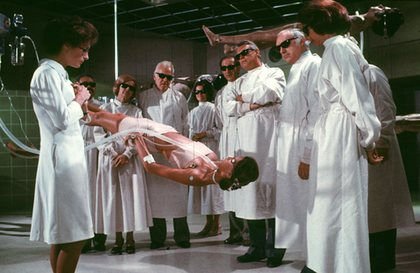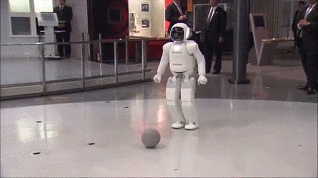How long will our species or some next-level version of it continue to exist? If we go on long enough, it’s not theoretically impossible that humans could replace our old “parts” with new bio-printed ones. A kidney here, a kidney there, it all adds up. Or maybe they’ll be remarkably good bioengineering that will allow us to repair and upgrade what we have, regardless of its condition. I said “we,” but we actually won’t enjoy these marvels. Perhaps some future iteration of us will.
From “The Father and Son Planning Meat-Free Immortality,” Jane Wakefield’s BBC piece about the very ambitious Forgacs family:
Organovo was set up by Hungarian-born Dr Forgacs, after he made the decision to quit his career as a theoretical physicist and retrain as a biologist – taking classes with undergraduates.
Those classes left him with a pretty lofty ambition – to grow organs that could mimic or even improve on existing ones.
He set about developing a process to print multi-cellular tissues – dubbed bio-printing – in 2005, and two years later founded Organovo with colleagues Keith Murphy and Dr Eric Michael David.
Its ultimate aim is to mass produce organs that could create a future in which humans, like cars, have regular services that keep them living indefinitely.
“If we could replace organs, we could live forever, and then it is up to us whether we want that,” he told the audience at the recent Wired conference in London.
He admits there is currently a lot of hype around bio-printing, particularly the idea of “growing” full organs.
“Bio-printing does not result in a viable biological structure. We cannot yet make big structures like livers or hearts,” he said.
“If it is possible, it will take a long time, so don’t smoke or drink too much.”•




